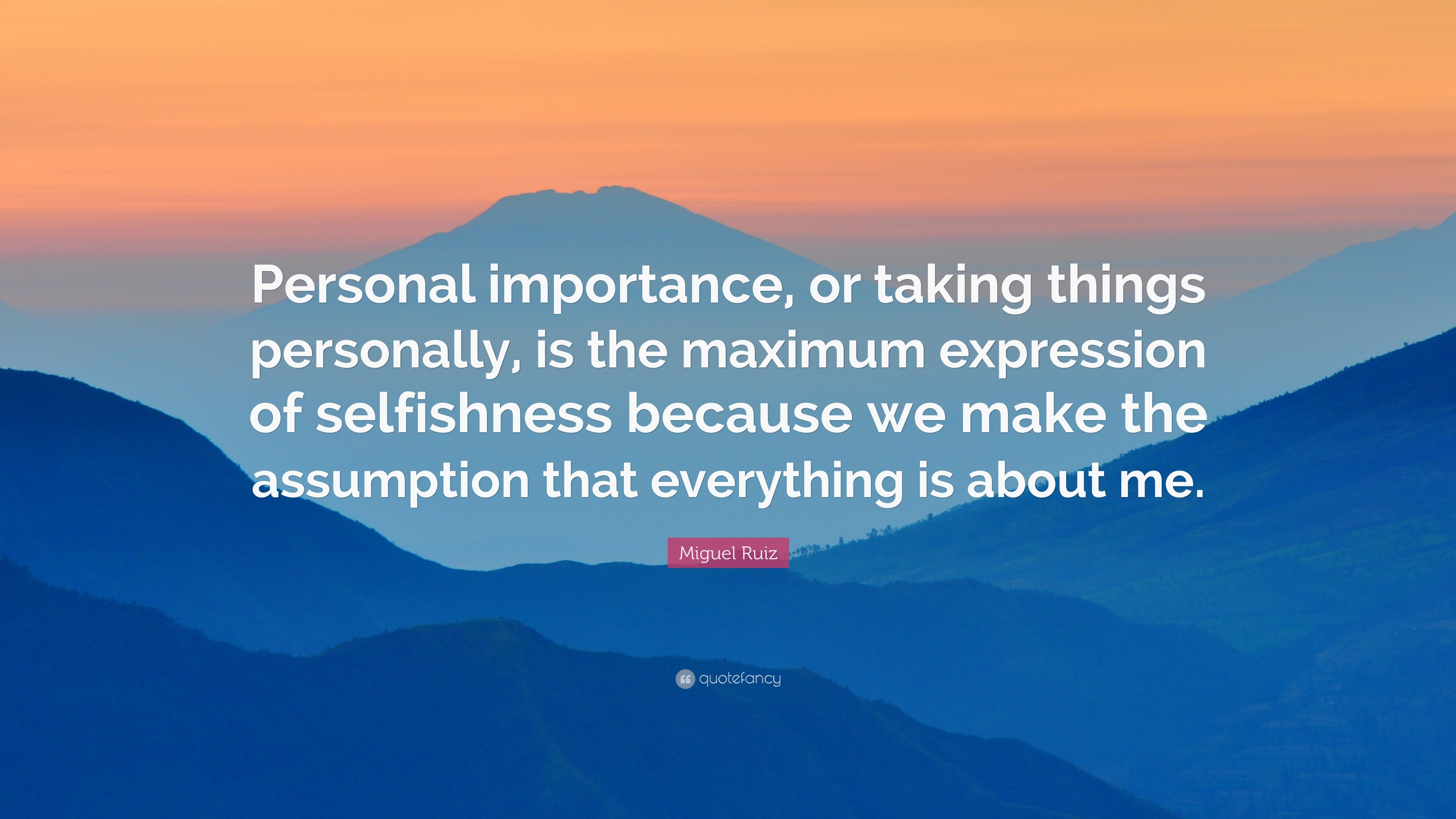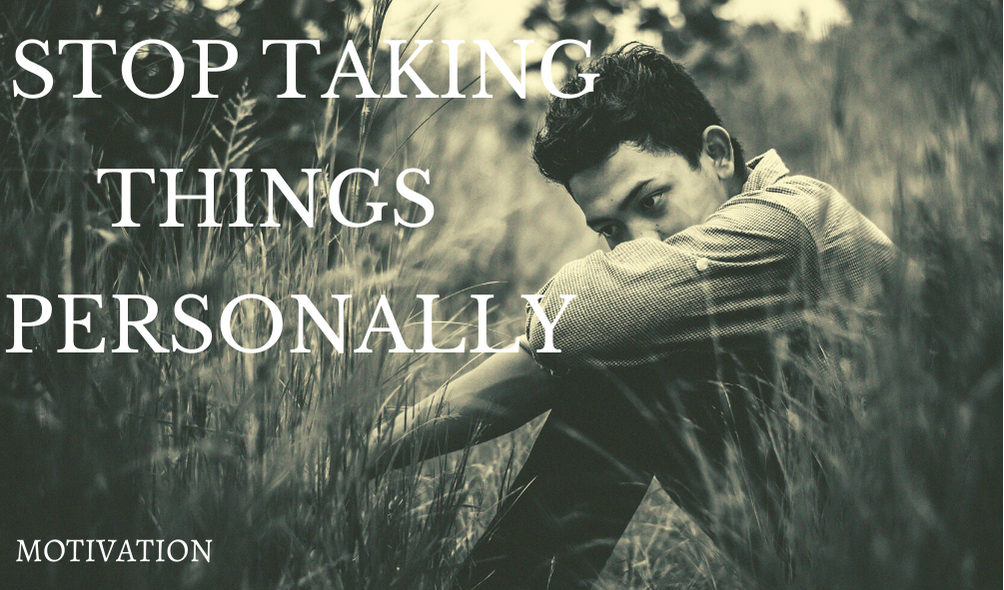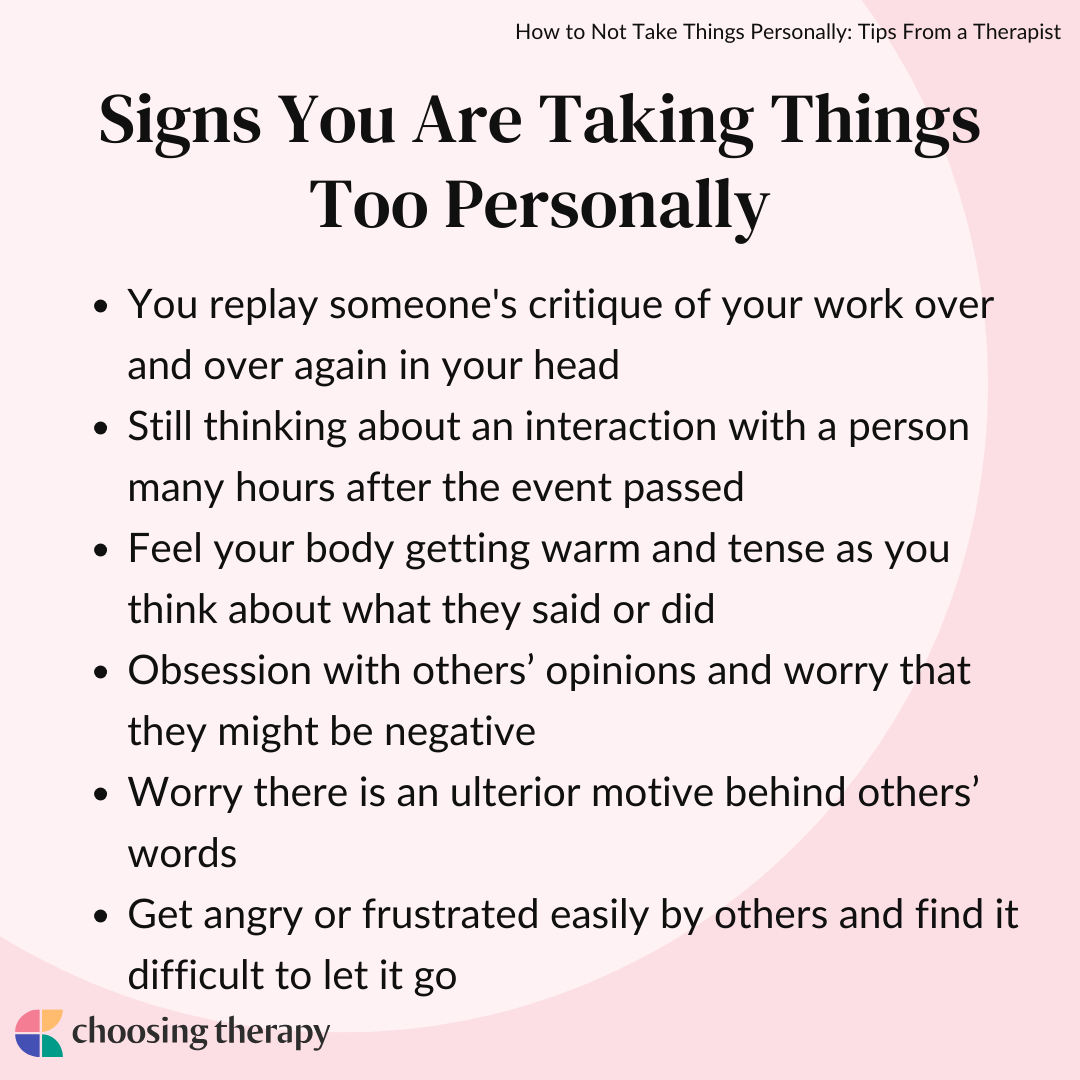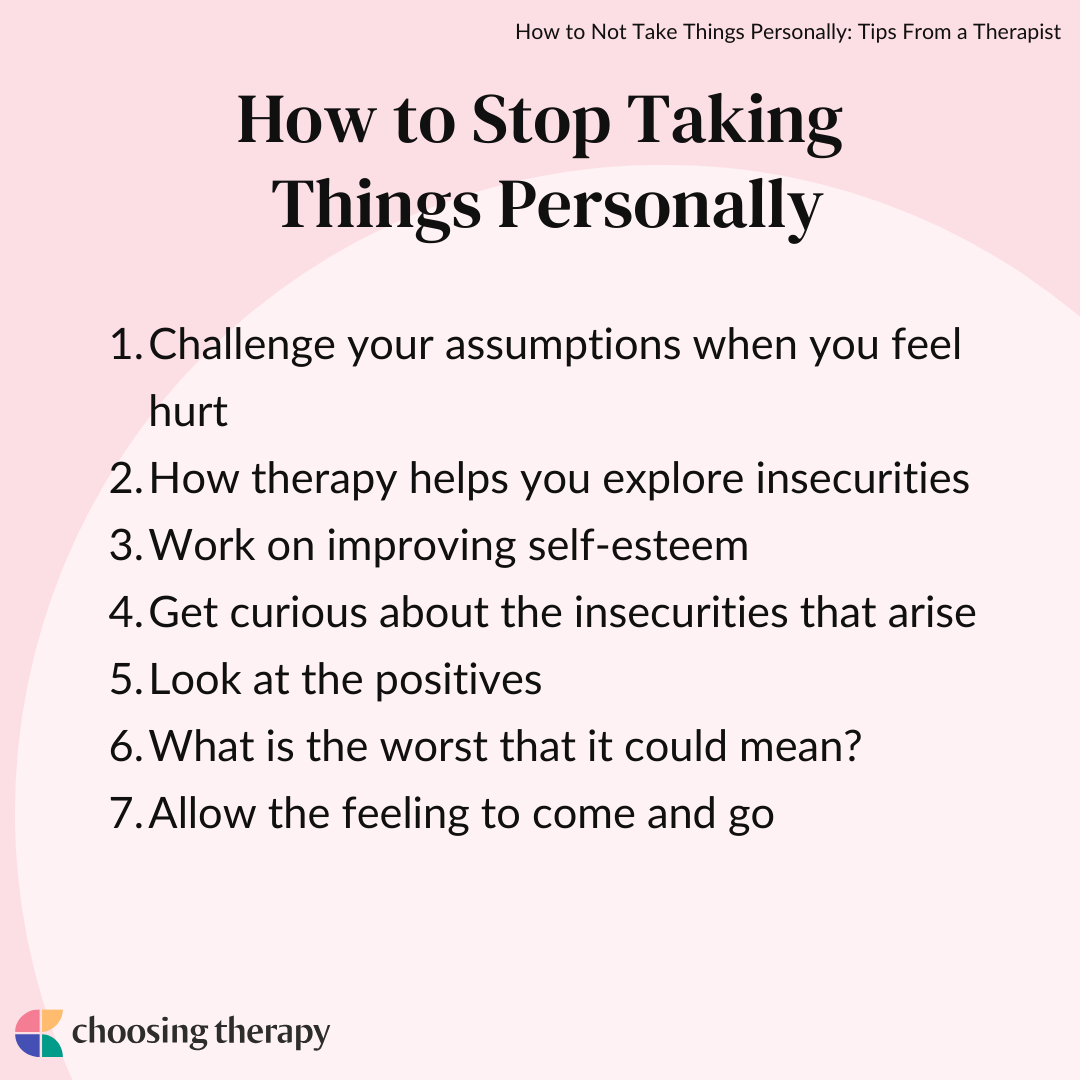Why Do I Take Things So Personally
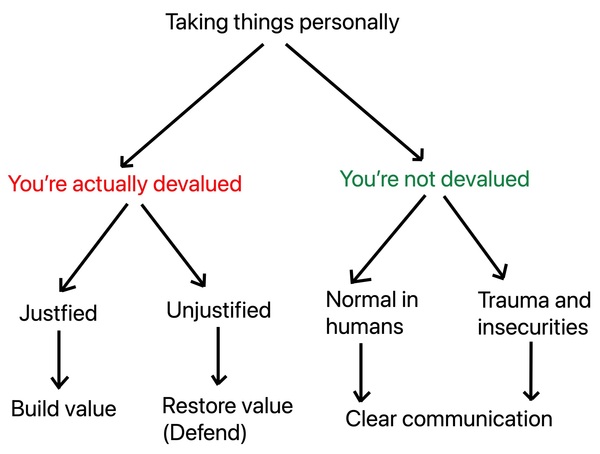
A cutting remark from a colleague, a perceived slight from a friend, a critical comment online – these can all trigger a cascade of negative emotions for some. Why do certain individuals consistently internalize interactions and experiences, interpreting them as personal attacks or reflections of their inherent worth? The tendency to take things personally is a pervasive human experience, yet its roots are complex and often deeply intertwined with individual psychology, past experiences, and social conditioning.
This article delves into the multifaceted reasons behind this common phenomenon. We will explore the psychological underpinnings that contribute to this sensitivity. We will also look at strategies for managing and mitigating its impact on one's mental well-being and relationships. Understanding the mechanisms at play is the first step towards building resilience and fostering healthier interpersonal interactions.
The Psychological Landscape
Several psychological factors contribute to the propensity to personalize situations. One significant element is low self-esteem. Individuals with a fragile sense of self-worth are more likely to interpret neutral or ambiguous cues as negative evaluations of their character or abilities, according to Dr. Kristin Neff, a leading researcher on self-compassion at the University of Texas at Austin.
Another contributing factor is attachment style, shaped by early childhood experiences. Anxious attachment, characterized by a fear of abandonment and a need for reassurance, can lead individuals to constantly seek validation and interpret perceived rejections as confirmation of their insecurities, explained attachment theory expert, Dr. Amir Levine, co-author of "Attached."
Furthermore, cognitive distortions such as catastrophizing and mind-reading can amplify negative interpretations. Catastrophizing involves exaggerating the potential consequences of a situation, while mind-reading assumes knowledge of another person's thoughts or intentions without concrete evidence.
The Role of Past Experiences
Past experiences, particularly those involving trauma, criticism, or rejection, can significantly influence an individual's sensitivity. If someone has been repeatedly criticized or belittled, they may develop a heightened vigilance for negative feedback. This vigilance can easily lead to misinterpretations of neutral interactions.
A history of bullying or social exclusion can also create a lasting impact on an individual's self-perception and their expectations of social interactions. These experiences can foster a sense of vulnerability and a tendency to anticipate negative outcomes, fueling the urge to take things personally.
According to research published in the Journal of Traumatic Stress, individuals with a history of adverse childhood experiences (ACEs) are more likely to exhibit heightened emotional reactivity and difficulty regulating their emotions, increasing their susceptibility to personalizing interactions.
Strategies for Managing Personalization
Fortunately, several strategies can help individuals manage their tendency to take things personally. One effective approach is practicing self-compassion, which involves treating oneself with kindness and understanding during moments of perceived failure or rejection. Dr. Neff's research demonstrates that self-compassion can buffer against the negative effects of criticism and promote emotional resilience.
Cognitive restructuring, a technique used in Cognitive Behavioral Therapy (CBT), can help identify and challenge negative thought patterns. This involves examining the evidence for and against negative interpretations and replacing them with more balanced and realistic perspectives.
Mindfulness meditation can also be beneficial. It helps individuals become more aware of their thoughts and emotions without judgment. This allows them to observe their reactions to perceived slights without getting swept away by them, fostering a sense of detachment and perspective.
Seeking Professional Guidance
In some cases, the tendency to take things personally may be a symptom of an underlying mental health condition, such as anxiety or depression. If this tendency significantly interferes with daily life or relationships, seeking professional help from a therapist or counselor is crucial.
Therapy can provide a safe and supportive space to explore the root causes of this sensitivity. Therapists can provide strategies for developing healthier coping mechanisms.
Looking Ahead: Fostering a More Empathetic World
Addressing the tendency to take things personally requires not only individual effort but also a broader societal shift towards greater empathy and understanding. By cultivating a culture that values kindness, respect, and constructive communication, we can create an environment where individuals feel safer and less vulnerable to misinterpreting interactions.
Promoting emotional intelligence and communication skills in schools and workplaces can also help reduce the frequency of misunderstandings and perceived slights. Understanding how our words and actions impact others is crucial for fostering healthier relationships and reducing the need for individuals to constantly defend themselves.
Ultimately, learning to navigate the complexities of interpersonal interactions is a lifelong journey. By understanding the psychological factors that contribute to this sensitivity and adopting effective coping strategies, individuals can build resilience, foster healthier relationships, and cultivate a stronger sense of self-worth, leading to a more fulfilling and less reactive life.




